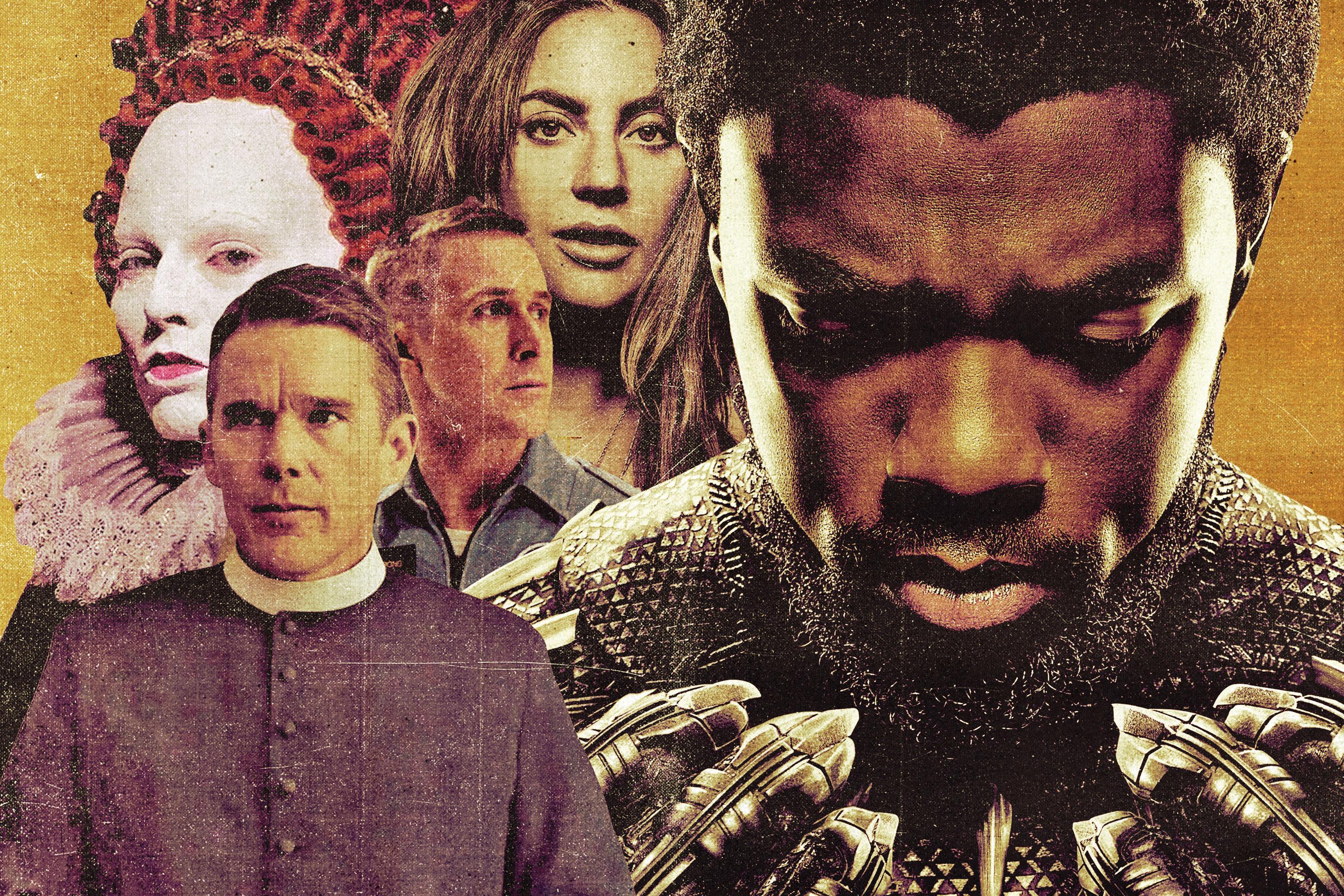
Normally, we don’t know much about the Oscars in August. A festival favorite may emerge late in the season, a forgotten icon excels in a midsummer sleeper, occasionally Wes Anderson releases his movie in the spring rather than the fall. Last year was slightly different: By this time in 2017, the world had already seen two Best Picture nominees, Dunkirk and Get Out, two screenplay contenders in The Big Sick and Logan, and two tech category standouts, Baby Driver and Kong: Skull Island. And there was also persistent noise around the inevitability of Sundance Film Festival favorite Call Me by Your Name. It felt like something had shifted. The base was getting bigger. But the studios rolling out Academy Awards fare know that the final quarter of the year is prime time, when attention shifts aggressively for a five-month stretch in which “the race” takes hold of a great deal of industry conversation, campaign management, and public ingratiation. In the movies, every year is an election year.
This year, that race has a rogue agent. But it isn’t a movie, it’s a motion. Last week, the Academy of Motion Picture Arts and Sciences announced that the telecast would be shortened to a “more globally accessible” three hours and that the season would be shortened in 2020, when the ceremony will occur on February 9, a full month early. Oh, and it decided to add something: “a new category designed around achievement in popular film.”
The Academy’s decision (whatever it is) isn’t shocking: Ratings are plummeting for live events, and the numbers for the Oscars in particular—popular culture’s Super Bowl—have fallen from an all-time high of 55 million viewers in 1998 to less than half of that. Last year’s 26.5 million is due to a variety of factors, but there is a correlation between the show’s ratings and the total box office of the nominees, a trend I examined earlier this year. When the Academy—and its broadcast partner ABC, which urged this change—has an Avatar or The Departed or Argo in contention, the audience tends to rise. (This is also true, to an extent, of the stars and star filmmakers like Martin Scorsese and Ben Affleck associated with the films.) In years with lesser-seen films, fewer people tune in. It’s not rocket science. It isn’t even long division. Last year’s matchup between The Shape of Water and Three Billboards Outside Ebbing, Missouri—two movies vanishing from the popular imagination faster than Harvey Weinstein—overwhelmed the significantly more popular and memorable achievements of Get Out and Dunkirk. That race stands as a kind of test case for how the Academy has struggled to reconcile taste with scope in recent times. It isn’t incumbent on AMPAS to agree with the rest of the world in celebrating Jurassic World by flinging money at it. But if it wants a popular show, it seems to know it needs to spotlight movies more people have seen. This, it appears, was its best hope at doing that.
The reaction to the news among the Oscar monitors was swift: What fresh hell is this? The vagueness and intellectual bankruptcy of the Academy’s idea has been upbraided by virtually every pundit and movie observer around, from Mark Harris to, well, Rob Lowe. Broadly, the flaws are obvious—the Oscars have a long history of awarding popular films. It’s sort of the point. In virtually every decade since the awards show was conceived, one of the year’s box-office champs has won Best Picture. Among them are Gone With the Wind, The Bridge on the River Kwai, My Fair Lady, The Godfather, Rain Man, Forrest Gump, Titanic, and The Lord of the Rings: The Return of the King. Hell, Star Wars, Jaws, and The Towering Inferno were Best Picture nominees. This isn’t a private showing of the Wittelsbach diamond. It’s a TV show featuring movie stars and jokes.
Movies, in their essence, are a popular medium, designed to draw crowds at great volume. They’re downtime elixir. The earliest nickelodeons, which began to crop up around the turn of the 20th century, were crafted and priced to undersell vaudeville theaters and create a frenzy around the new technology of the projected moving picture. In 2009, when the Academy expanded the pool of Best Picture nominees—a reaction, many believe, to its failure to nominate The Dark Knight—ratings spiked in light of a showdown between Avatar and The Hurt Locker. Then it backfired. The 2010s thus far is the first time one of those box-office champs hasn’t taken home a Best Picture statuette. Wins for films like Spotlight (over Mad Max: Fury Road and The Martian), Moonlight (over La La Land and Hidden Figures) and last year’s win for The Shape of Water have created a kind of panic.
The Academy has made significant changes in recent years, broadening its membership, becoming more inclusive, and responding to the shrinking influence of its vision. But the expansion in 2009, like this new twist, was a short-term fix for an unsolvable conundrum: the fracturing of attention spans, points of interests, and what we once called the center of culture. There is no center now, just an ever-widening gyre of content. This doesn’t strictly refer to the rift created by new tools, like streaming TV, Instagram, and Fortnite. It means the center of movies can’t hold, not when franchises and sequels feel increasingly demarcated from whatever we deem “awards fare.” Serialized behemoths don’t feel like movies; they’re events, with more in common with a Dodgers game than a night at the playhouse.
It isn’t an easy thing to solve. In January 2017, I glibly suggested the Academy nominate Deadpool in an effort to bust open some of its own notions of worthiness. Is Deadpool actually worthy? I’m not sure anyone really cares. History doesn’t support that kind of haughtiness either. The utterly forgettable Oliver! won Best Picture half a century ago, while 2001: A Space Odyssey (the year’s box-office winner), Rosemary’s Baby, Night of the Living Dead, Planet of the Apes, and Bullitt were not nominated that same year. This is not a meritocracy, it’s a subjective popularity contest voted on by a private club. It has history it would like to forget—exclusionary, birdbrained, reactive, vulnerable to electioneering, and judged on illusory achievements. The “popular” film category will not erase the history, nor will it raise ratings for long. It’s the proverbial Band-Aid on a bullet hole.
But there is, of course, a moronic irony to the news. The Academy was virtually guaranteed a major motion picture in its Best Picture race this year: Black Panther. By nearly all accounts, among Oscar prognosticators and industry veterans, Ryan Coogler’s Marvel adaptation—which is now the third-highest-grossing film in American history—was a lock. Now, nothing’s a lock in the Oscars, and certainly not a superhero movie with a third act that culminates in a goofy CGI punching match. (Marvel Studios has been nominated for nine Oscars among its 17 eligible films, but only two of those have come outside the Best Visual Effects category.) Still, the marketing and campaign dollars that Disney (typically an awards-season bystander) will supply combined with the social representational forces that will form around the movie as awards season approaches make it a highly likely entrant.
We could examine what the “popular” category might look like—and I will below, sort of—but what’s most interesting about this turn of events is that Black Panther was literally the only film we’ve seen this year that seems remotely certain to be recognized in the major categories at the ceremony in February. Everything else is unknown. As a purely speculative exercise, let’s look a little more closely at the races to get a sense of what may be coming for the rest of the year, what I’ve heard people around the industry saying, and a decision that could become an all-time quagmire for the Academy.
Best Supporting Actress
What We Know: Literally nothing. There almost certainly hasn’t been a performance in this mold so far in 2018 that would be recognized—Black Panther’s Letitia Wright and Danai Gurira feel unlikely. Depending on its success, I could see a campaign for Michelle Yeoh’s clenched-jaw performance in Crazy Rich Asians, which opens Wednesday. But otherwise, the fates are ahead of us.
What We’re Getting: Amy Adams has been nominated four times in this category (as well as once for Best Actress) and lost every time. Adams is one of the most well-liked, recognizable, uncontroversial actors in Hollywood. She picks thoughtful projects (when avoiding DC movies) and her role as Lynne Cheney in Adam McKay’s Dick Cheney biopic, still titled tentatively Backseat, feels like a ripe moment. In the past, the category has largely awarded ingenues and grande dames but recent years have seen sturdy performances from respected lifer types: Allison Janney, Viola Davis, Patricia Arquette, Melissa Leo. Adams is a mite younger than that group of women, but hugely accomplished. Playing with a blind hand, it feels like a safe bet.
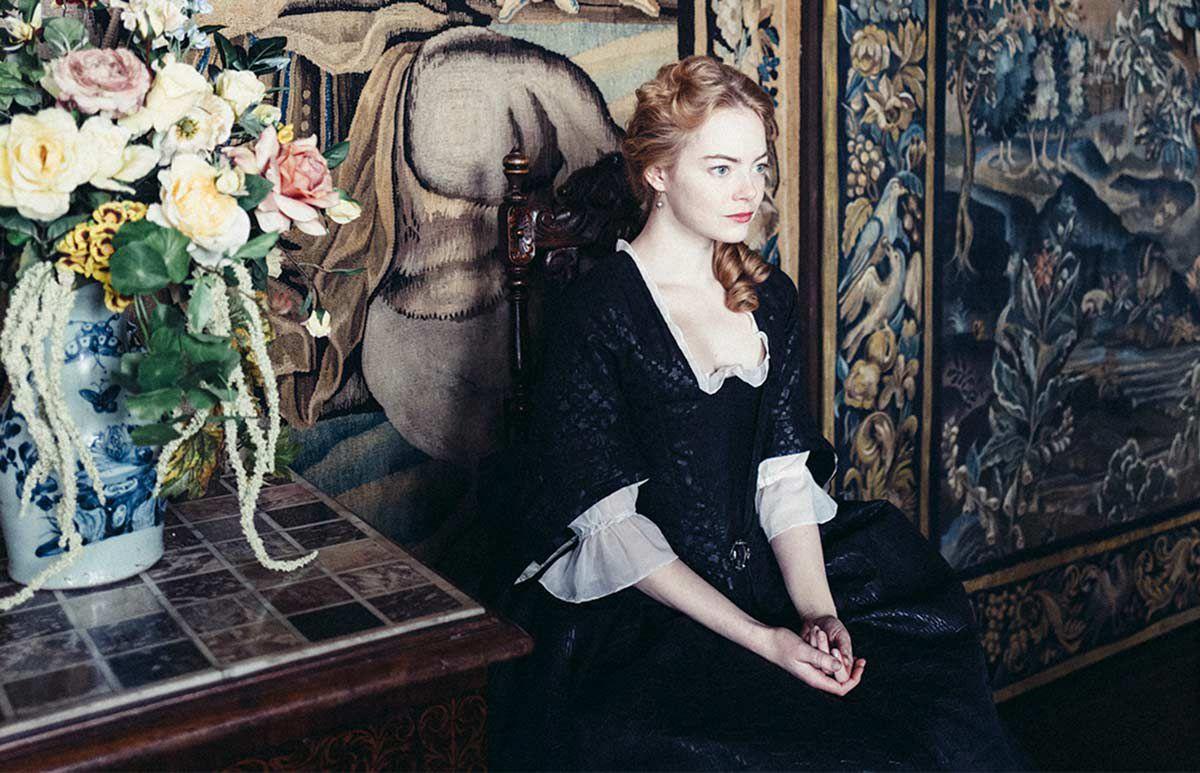
There is an unsettled factor in this race, and that is Yorgos Lanthimos’s The Favourite, which stars Emma Stone, Rachel Weisz (a former winner in this category), and Olivia Colman, though perhaps not in that order. Few know how the actresses will be slotted and campaigned, and only a handful of test audiences have seen the movie. (It will open the New York Film Festival next month.) There are other contenders: four-time nominee Nicole Kidman in Boy Erased, the ascendant Margot Robbie in Mary Queen of Scots, Claire Foy in Damien Chazelle’s La La Land follow-up First Man. This is routinely one of the most difficult groups to predict. (Doubly so when you haven’t seen a damn thing.)
What We Want: From a purely narrative perspective, it’ll be fun to see what happens with Cynthia Erivo this fall. The lesser-known British stage actress is one of the few people on earth with a credible chance at a true EGOT (that’s an Emmy, Grammy, Oscar, and Tony, for the non–30 Rock fans). Erivo is in two movies this fall, Steve McQueen’s Widows, his first film since 12 Years a Slave; and Bad Times at the El Royale, a somewhat mysterious puzzle-box thriller from the highly respected screenwriter and second-time director Drew Goddard. The former feels like bait, but it’s El Royale that has been tabbed as Erivo’s entree. Another fun fact: These are Erivo’s first two film credits.
Best Supporting Actor
What We Know: The Michael B. Jordan Machine has not started in earnest, but I have a feeling that Erik Killmonger—in the tradition of Gene Hackman’s Little Bill Daggett, Javier Bardem’s Anton Chigurh, and Heath Ledger’s the Joker—will go down as an all-time villain. Jordan’s performance—a physically demonstrative, impressionistic blend of 2Pac and Jason Bourne—was controversial upon the movie’s release. But it has developed a reputation as a leap forward for Marvel in the kind of nemesis it can create for its heroes—threatening but morally complicated and bound by personal honor.
We’ve also seen a tender, sensual performance from Jonah Hill in Gus Van Sant’s Don’t Worry, He Won’t Get Far on Foot (though most people haven’t). And this weekend revealed two of the more intriguing candidates depending on how this category shakes out: Adam Driver and Topher Grace in Spike Lee’s BlacKkKlansman. As Ku Klux Klan leader David Duke, Grace airlifts his prep-weasel charm into a heinous figure and finds an embarrassing dunderhead in the subtext. Driver’s role is more complex, as a Jewish police officer who goes undercover as a white supremacist to infiltrate the KKK. His performance is in keeping with what has become one of the best and most thrilling big-screen résumés in recent memory. Already, the 34-year-old Driver has worked with Steven Spielberg, Steven Soderbergh, Clint Eastwood, Noah Baumbach, Jim Jarmusch, the Coen brothers, Lee, and he’s the star of the biggest franchise in the known universe. He is an Oscar nomination waiting to happen.
What’s Coming: Chalamet coming. When we look back on the 2017 Best Actor race, we will think of Gary Oldman’s inevitability, Daniel Day-Lewis’s deserved-but-not-to-be fourth (!) Oscar, but most importantly, we’ll think of the introduction of Timothée Chalamet, who imprinted on several generations with his languorous, emotionally resplendent role as Elio Perlman. This year, he appears as Nic Sheff, a young man battling addiction and evading his father in Beautiful Boy. It’s a role custom designed for the Oscars, and could continue a tradition of awarding a gifted actor one or two roles too late.
Additionally, there’s Lin-Manuel Miranda in Mary Poppins Returns (more on him later), Steve Carell in Backseat, Chalamet’s old screen partner Armie Hammer in On the Basis of Sex, and Russell Crowe in Boy Erased.
What We Want: Jordan, Driver, and Chalamet are the future (present?) of male American movie stardom. But there is already some noise for an old scalawag, Richard E. Grant, the beloved 61-year-old British actor best known for Withnail & I, Gosford Park, and, um … Hudson Hawk? Grant appears opposite Melissa McCarthy in Marielle Heller’s Can You Ever Forgive Me?, the true story of memoirist and fabulist Lee Israel. Shouldn’t this man have a statuette?
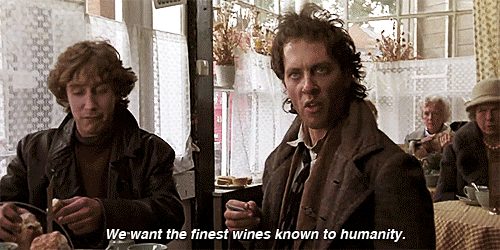

Best Actor
What We Know: John David Washington has arrived. Denzel’s son is best known to TV fans as the star of HBO’s Ballers and to fans of the United Football League’s Sacramento Mountain Lions as a backup tailback for four seasons, until the league folded in 2012. Now, he is Ron Stallworth, the undercover protagonist of BlacKkKlansman. In a performance that is one part muted and one part sly, Washington evinces little of his father’s deep burn or lionish prowl. He’s a more still and slick performer. Whether he’s on his way to stacking up to his dad’s nine Oscar nominations isn’t clear.
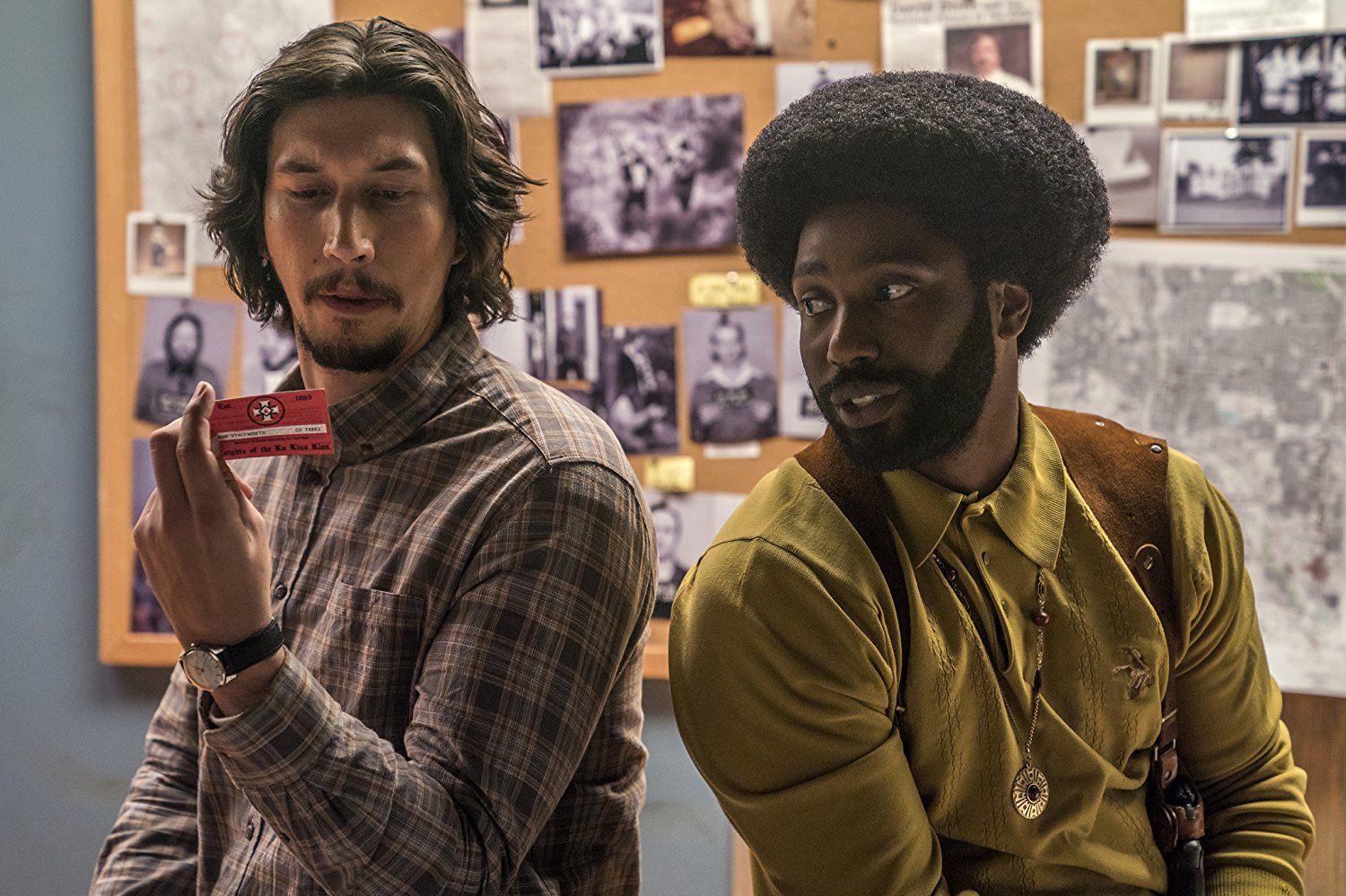
What’s Coming: Robert Redford is retiring (again) and so there will be a push for him in The Old Man & the Gun. Ryan Gosling is playing Neil Armstrong in First Man, the sort of real-life portrayal of an extraordinary citizen that is often recognized. Likewise, Christian Bale is Dick Cheney in a movie that will likely have little of the practical gravitas of First Man, but plenty of makeup, weight-gaining, and vocal theatrics. And Bradley Cooper has strapped on his Father John Misty mask and whiskey throat for A Star Is Born.
But the earmarked front-runner is Lucas Hedges for Joel Edgerton’s Boy Erased, also a true story about the son of a Baptist preacher who is forced to endure gay conversion therapy. In his short career, the 21-year-old Hedges has already appeared in four Best Picture nominees (Three Billboards, Lady Bird, Manchester by the Sea, and The Grand Budapest Hotel) and is developing a John Cazale–lite reputation for choosing only the best projects. Boy Erased is his first centerpiece role. It’s worth paying attention.
What We Want: Ethan Hawke, First Reformed. The only other performance we’ve seen that has a chance in this category, and Hawke is worthy. With his directorial effort Blaze and a role in the charming rom-com Juliet, Naked in theaters this week, of late Hawke has been wrapping up the title of Most Delightful Celebrity Interview Alive. But his work in First Reformed, as a pastor with a burning world’s burden in his belly, is the kind of thing he has been building toward for decades, having cycled through wide-eyed boy wonders, Gen X misanthrope icons, pretentious modern-day Hamlets, and movie star bag-carriers. Hawke is a fully formed star, an exceptional actor, and a man in full. It’d be nice to see him get this.
Best Actress
What We Know: There was a burble for the great Toni Collette when Hereditary was released earlier this year. She’s been nominated only once before, for a role that is a bit like the looking glass inverse in 2000’s The Sixth Sense, as a mother driven to extraordinary grief. Unfortunately, it doesn’t feel as though the momentum for Collette has continued.
What’s Coming: Maybe Weisz or Colman or Stone will appear here for The Favourite. Maybe Viola Davis for Widows. Maybe Melissa McCarthy for stretching beyond the comic in Can You Ever Forgive Me? The great unknown is Lady Gaga—a preposterous sentence in its own right. As the lead in Bradley Cooper’s A Star Is Born, Gaga has some precedence behind her. Both Janet Gaynor and Judy Garland were nominated for their performances in the 1937 and 1954 version of the movie, respectively. (Barbra Streisand was shut out in 1977 for her version.)
What We Want: Saoirse Ronan, Mary Queen of Scots. She should have won last year. And I’d be more than comfortable with Ronan being this generation’s Meryl Streep. At 24, she has three nominations. Streep didn’t receive the first of her 21 nominations until she was 30. Ronan’s got a significant head start.
Best Director
What We Know: Spike’s on the board with BlacKkKlansman. Ryan Coogler, too.
What’s Coming: This one is stacked. There will be a Cooper push. McKay is due for serious consideration. Lanthimos could get elevated by not directing one of his own semantically obtuse scripts. Former winner Chazelle is a magician. His old running mate Barry Jenkins is bringing If Beale Street Could Talk, a long-gestating James Baldwin adaptation. And McQueen is there too—he was passed over in 2014 for Alfonso Cuarón, who just happens to have a new film this year, with Netflix’s Roma.
I’m most intrigued by the latter. Those I’ve talked to who have seen it have called Roma one of the truly magnificent cinematic experiences of the decade. (This from the guy who made Gravity and Children of Men.) But Cuarón’s deal with Netflix is evolving in real time, as producers are lobbying for wider theatrical release than normal to draw more attention to the grandeur and scope of the director’s work. Netflix, of course, doesn’t need theatrical to thrive. Even when it pays cinema’s masters to go grand. We’ve not seen this before, the unstoppable force of a streaming giant meets the immovable object known as a powerful director’s ego. What a time to be alive.
What We Want: Spike. Just do it already. He’s never even been nominated in this category. Not for Do the Right Thing. Not for Malcolm X. Not for 25th Hour. It’s one of Oscar’s most shameful omissions. BlacKkKlansman is not necessarily Spike at his best, but it is among his most resonant. It’s time.
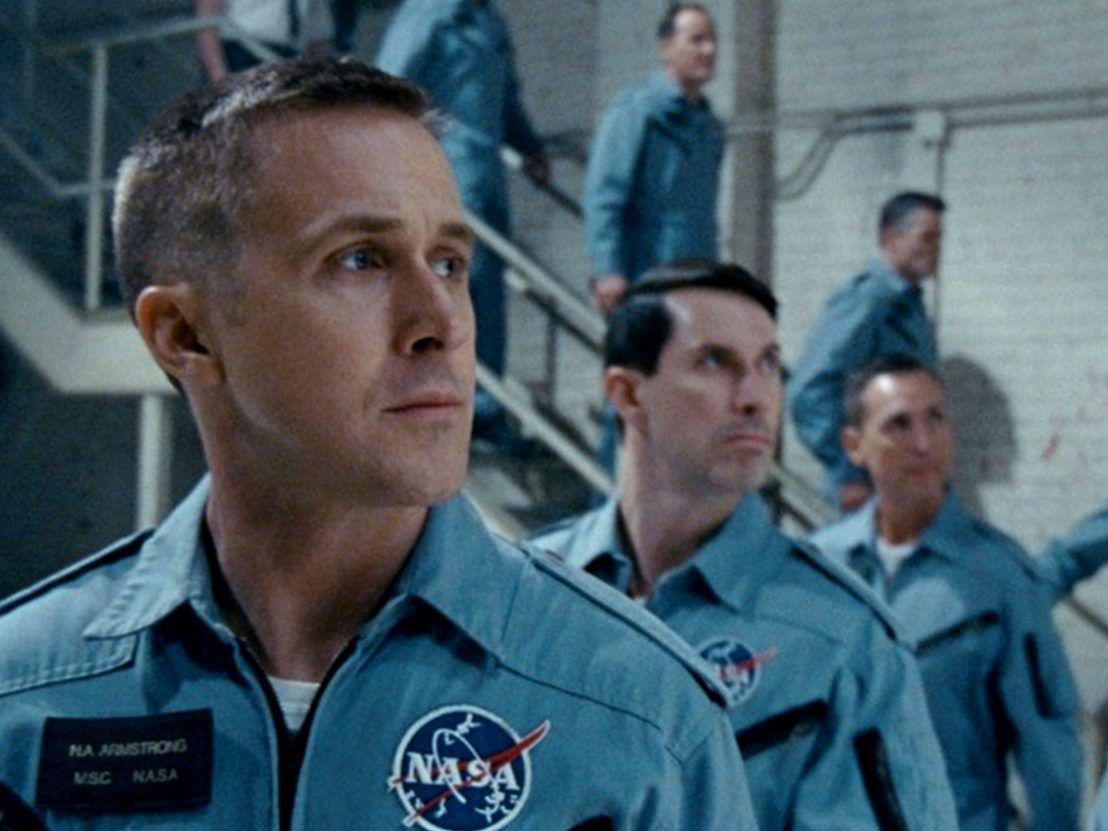
Best Picture
What We Know: BlacKkKlansman and Black Panther and (I doubt it, but maybe) the successful Mister Rogers documentary, Won’t You Be My Neighbor?
What’s Coming: You’ve heard them all by now. Take five: Backseat, First Man, Roma, A Star Is Born, and Black Panther. Those movies fit all the archetypes: the political allegory in a desperate time, the true-life hero’s tale, the auteur’s vision, the grand Hollywood bacchanal, and the blockbuster. At least a few more will come out of nowhere—a Beasts of the Southern Wild, a Philomena, or a Toy Story 3. Beale Street? The Favourite? Widows? The Polish master Pawel Pawlikowski’s Cold War? Jason Reitman’s Gary Hart biopic, The Front Runner? A surprise release of James Gray’s Brad Pitt–starring space opera Ad Astra? Something will emerge from the cosmos that we can’t yet see. Will this be a vibrant category composed entirely of massively successful movies that we all agree on? It never is.
What We Want: There’s just one problem with wanting anything here ...
Outstanding Achievement in Popular Film
What We Know: Well, we know this is dumb. In a matter of hours, it became the Poochie of movie awards. Maybe it won’t happen. Maybe the Academy will blink. But if it does shake out the way many of us are imagining, it could be with some sort of arbitrary rule delineating films with $50 million-plus budgets and $200 million-plus grosses as eligible. So far, that would include Black Panther, Incredibles 2, Deadpool 2, Avengers: Infinity War, Jurassic World: Fallen Kingdom, Solo: A Star Wars Story, and Ant-Man and the Wasp. The problem with meaningless parameters like these is that under these circumstances I just invented, genuinely “popular” and successful films like A Quiet Place, Mission: Impossible—Fallout, and Game Night would not be eligible. Ask someone on the street whether they like Solo more than any of those movies. There’s your fallacy.
What’s Coming: Not much. Under the presumption of the imagined rules above, I’d venture to guess that only Mary Poppins Returns, Ralph Breaks the Internet: Wreck-It Ralph 2, and Fantastic Beasts: The Crimes of Grindelwald will be eligible by March. (Though could release dates become a hindrance in this category?) Maybe Creed II or … [wincing while also crying] Aquaman will surface. If the Academy wants people to watch its show, it should hire a host that cannot lose—like, say, the Rock. Or maybe better yet, Lin-Manuel Miranda. It should reorder its sequence of awards-giving. It should promise to reveal the voting totals for Best Picture. It should create new categories viewers will invest in. It should give away more Jet Skis. It doesn’t need to do this.
What We Want: Cyanide? Setting aside the inevitable practical difficulties of adjudicating this category—and the prospect of an extended clip of Thanos committing genocide airing during the ceremony—I still can’t seem to understand what it accomplishes. The easy comparison has been to MTV’s long-running Movie Awards—but give credit to MTV, it sought to differentiate itself from other awards shows by giving out purposefully goofy prizes like Best Kiss, Best Fight, and this year, Best Frightened Performance. That’s just ridiculous, and I respect it. A race among three Marvel movies, a Fox (soon Marvel) movie, and a Pixar movie isn’t a race. It’s a commercial, brought to you by ABC, which is brought to you by Disney, which is brought to you by that ever-widening gyre of content.

